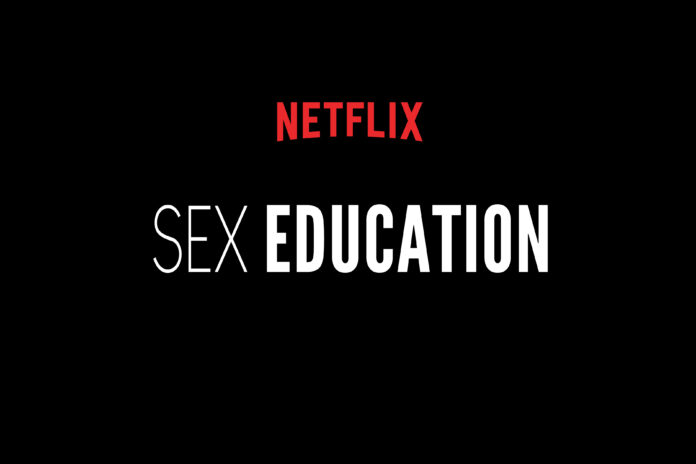The sex-ed course we all deserved
The second season of “Sex Education” premiered on Jan. 17, and it has surpassed all expectations. Netflix has done it again, this time through a dramedy with the educational value of a documentary focused on the epidemic that is shoddy sexual education.
The show takes place in a fictional town in the United Kingdom, where Otis, a sexually confused teenager, gives out sex advice to fellow high schoolers. The difficulties of adolescence, especially pertaining to sex and sexuality, are highlighted by the varying concerns Otis’ classmates express to him.
Season two opens with school-wide hysteria over a misconception that chlamydia is airborne. The overdramatization of students’ reactions is amusing, but perhaps more valuable is the resolution of the scare, when we learn about the true nature of the disease. The audience is taught something about the treatable and common STI, while the storyline seamlessly transitions to Otis’ mother, a sex therapist, working at the school for the obvious need of improved sexual education.
This is where the show succeeds in tying entertainment and education together; the plot is supported by the teachings of Otis and his mother to troubled sexual novices, but, at the same time, this gives viewers knowledge that may be common to some and news to others.
This also makes way for some relevant social commentary. The extreme lack of education is what caused the dramatic reaction to an STI and, more generally, leads to the success of Otis’ business in sex therapy at the highschool. The slew of sex and relationship issues he addresses sheds light on the detriment of an uneducated group of youth who are sexually active and calls out our education system for its disservice to students who have been denied sufficient information about sex.
The show depicts the characters’ countless sexual inquiries on topics that should be covered in the classroom. When a young man wants to have sex with his boyfriend, he goes to Rahim, the openly gay new kid, for advice. Rahim calls him out for his inability to communicate with his partner; if he can’t be open with him, should he even be having sex in the first place?
Maybe these conversations would be easier if we were taught that talking about sex is normal. For young people watching, this scene, among many others, offers reassurance and reflection on decisions about sex.
The characters’ predicaments touch on some deep-rooted social constructions of gender and sexuality as well.
Otis and his girlfriend Ola offer up a different heterosexual dynamic than is usually portrayed onscreen. When Ola is ready to “go all the way,” Otis is still too nervous to do anything too crazy. Their relationship switches the stereotypical narrative of an uncertain girl who is pressured into having sex to an apprehensive boy who is constantly given space by the girl who is more interested in sex. Their open dialogue makes for a much safer and healthier relationship.
Then there’s Adam who, arguably due to his emotionally abusive and sexually repressed father, experiences internalized homophobia. His development this season highlights the forces that create men with this type of hateful personality and reminds us that we’re much better off owning who we are.
The struggles each character faces, sexual, social or otherwise, paired with a solid cast, make it easy to become invested in this show. In addition, the ‘80s aesthetic ties it all together — the interior design and fashion choices almost mock how far we are from adequate sex-ed.
In just two seasons, we’ve seen riveting character development and several societal issues get called out, with a lightheartedness throughout that makes this show so special.
The title says it all. “Sex Education” gives us the awkward, hearfelt hilarity that is adolescence, while filling in the gaps in our own sex-ed knowledge.
A television show shouldn’t be a better teacher than our education system, but given the circumstances, I’m not mad about it.
Written By: Allie Bailey — arts@theaggie.org




